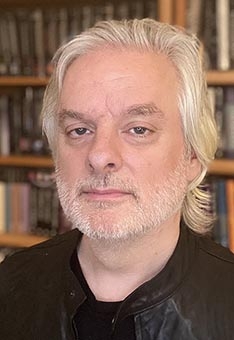Renowned philosopher and cognitive scientist David Chalmers is the featured speaker at the annual Feigenbaum Forum on Innovation and Creativity, Wednesday, Oct. 30, at 5 p.m. in the Nott Memorial.
His talk, “Can ChatGPT Think?,” is free and open to the public.
Chalmers is professor of philosophy and neural science and co-director of the Center for Mind, Brain and Consciousness at New York University.
He’s the author of “The Conscious Mind,” “Constructing The World” and “Reality+: Virtual Worlds and the Problems of Philosophy.”
He also is known for formulating the “hard problem of consciousness,” which refers to how subjective experiences such as tastes, sights and sounds arise from physical brain processes, and for promulgating the idea of the “extended mind,” which says that the tools humans use can become parts of their minds.
The forum is supported by the Feigenbaum Foundation, created by brothers Armand V. Feigenbaum ’42 and Donald S. Feigenbaum ‘46, longtime benefactors to Union. The talk is presented in partnership with the Templeton Institute and the Department of Philosophy.
Acknowledged world leaders in systems engineering and total quality control, the Feigenbaums founded General Systems Co., a Pittsfield, Mass.-based international systems engineering firm that designs and helps implement operational systems for corporations and governments worldwide. Armand died November 2014; Donald, March 2013.
For more than a dozen years, the brothers hosted the Feigenbaum Forum, a gathering on campus at which academicians discussed characteristics of a new generation of leaders and how better to integrate liberal arts and other studies. The current series builds on this event by bringing in prominent speakers who have revolutionized their fields of endeavor through contributions deemed innovative and creative.
Previous speakers have included Pulitzer Prize-winning New York Times columnist and author Thomas Friedman; John E. Kelly III ’76, a former executive vice president at IBM; noted techno-sociologist Zeynep Tufekci; Howard Gardner, an internationally renowned psychologist; and artist and designer Maya Lin, whose work includes the Vietnam Veterans Memorial and the Civil Rights Memorial.
